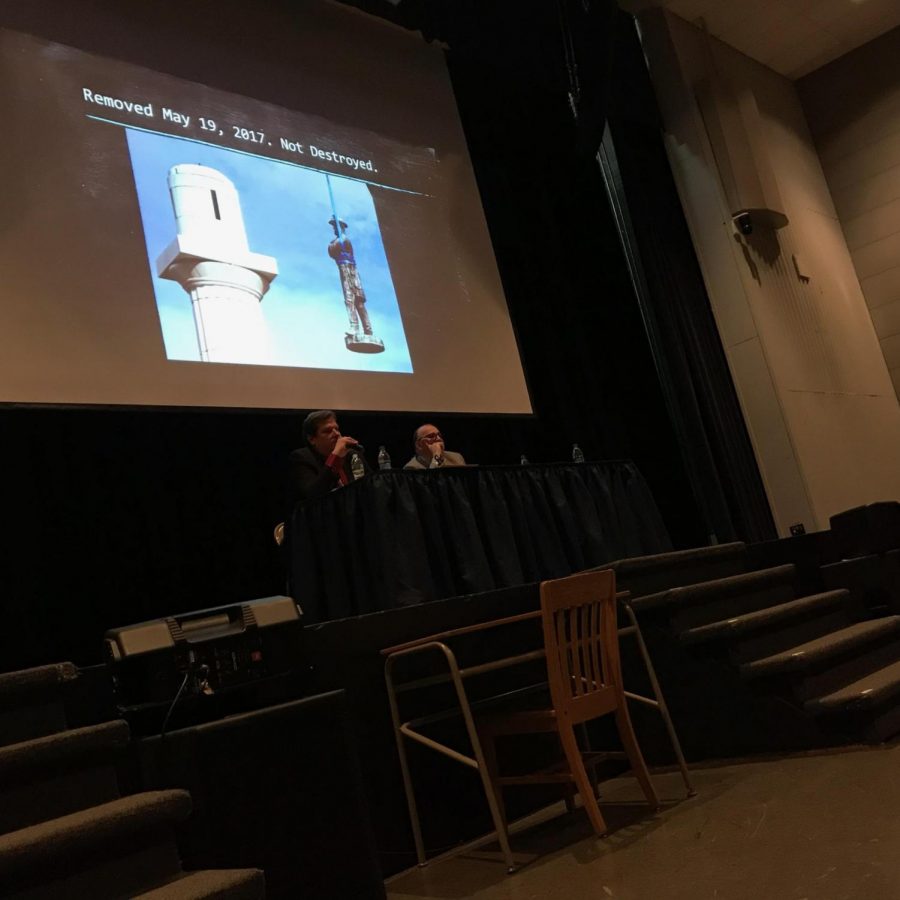From the Anchor Desk: the Editor’s Note
December 6, 2017
With the advent of the Academic Forum concerning Confederate symbolism, the topic is hot in our school. It’s not a light one either, and this isn’t a fashion article or music review.
There are strong feelings on both sides, which is expected since this issue sprouted from the roots of America’s most devastating war. It is hard to tiptoe around the subject, but it’s certain to say that some who vouch for these monuments are sincere in their insistence that it is about heritage. How could they not believe so when that’s the reason that has been offered for decades now? It’s also certain to say that a Confederate flag in one’s backyard, while perhaps distasteful to others, is okay by free speech laws.
What is not okay is that Confederate leaders – especially those with questionable histories – are venerated in public memorials made of marble and elevated on pedestals. The only way these memorials were allowed up in the first place was due to the guise that Confederates donned just months after the Civil War. Before and while the war ensued, it was blatantly stated that the cause of the Civil War was due to slavery; it affected economics, politics, and society in the South, which were all alternate reasons later provided for why the war was fought. Once the war was over, Confederates claimed they fought for independence (to be able to own slaves.)
And it’s been that way ever since.
It’s hard to believe that many in northern Maine keep up the faulty heritage excuse to disguise actual hatred – the pride is probably real in most cases. But elsewhere it’s still just a ruse to mask hatred and allow statues of Nathan B. Forrest, the first grand wizard of the KKK, to remain standing.
Supposedly, it’s to commemorate history, but there are far better ways. In Germany, monuments to the persecuted dead of World War II stand, reminding all of the horrors of segregation and genocide.
Normally and ideally, we dedicate statues to heroes who aided in efforts to free others and bring justice to wrongs such as the Holocaust and slavery.
In the United States, we need to unite on who we believe to be actual heroes and what is heroic. These Confederate monuments and their likenesses are not a reasonable choice.

